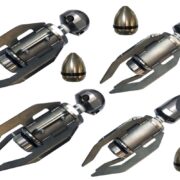On a farm, there are many uses of energy. Everything you use and need can be purchased and run with energy, such as heating and air movement, lights, fans, and irrigation. Energy is costly if not handled correctly, so let’s look at a few simple ways to make farm energy efficient.
Table of Contents
1. Use Post-Frame Buildings
Post-frame buildings are incredibly efficient, with a significantly higher R-value than frame and panel or stick-built structures. Plus, post-frame facilities are easier to install, reducing operating costs and making them an excellent option for many farmers, who could use the savings to invest in alternative energy sources.
2. Change Energy Supplier
Changing your energy supplier will make a big difference. Not only can you save money, but by choosing a company that has a lower environmental impact, you ensure that your electricity comes from low-emission sources.
3. Insulation
Insulation helps lower the energy consumed by a building. The primary benefit of good insulation is that it reduces heat conduction and convection through walls, roofs, floors, and ceilings.
4. Heating Controls
Heating controls are an important way to increase efficiency on your farm and protect the environment. They control how many BTUs of heat are needed at different times of the year, which can save money over time. If a system is not being used, it should be turned off or set to a lower temperature to avoid burning excess fuel.
5. Lighting
Lighting is one of the easiest things to reduce energy use in your home. As a rule, you should aim for one light per room and keep the lights off as much as possible. Of course, there are times when every home needs full-on lighting, like going to sleep at night or entertaining guests. In those instances, it’s better to use CFLs (compact fluorescent lights) or LEDs (light-emitting diodes) because they last so much longer than incandescent bulbs.
6. Ventilation
Ventilation is the movement of air into and out of a structure. Ventilation systems help maintain air quality by removing excess heat, moisture, and contaminants from buildings, vehicles, and other enclosed spaces. Ventilation occurs through a system of openings in the building envelope (floors, walls, windows, doors) connected to a ventilation duct network. Ventilation is a key to energy efficiency on the farm. It can help keep energy bills low and equipment running efficiently by reducing moisture and excess heat in the air.
7. Vacuum Pumps
Vacuum pumps are crucial to the success of any farm. They draw water up inside and force it out through a pipe, which is essential when building a farm since the pump uses energy and has to be replaced periodically. Since vacuum pumps are used all day long, they should be efficient to save money and electricity by using less power to run the vacuum; this will reduce costs.
8. Renewable Energy
Renewable energy is an essential factor in helping the world move towards a clean and sustainable future. Today, renewable energy includes sources like solar power, wind energy, geothermal heat pumps, and hydropower. These clean forms of energy can also heat water and provide other resources for a farm.
Whether you’re thinking of setting up a farm or are already in operation, it’s worth investigating how you can make your farm as energy-efficient as possible. It will ultimately save you some money, which is always welcome.













Comments